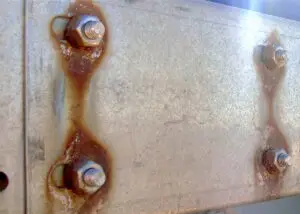5G airport EMI shielding is needed to support the adoption of 5G technology in commercial aviation. SSP can help.
Last week, Verizon and AT&T announced that they would delay the expansion of new 5G cellular service near some U.S. airports. Although the telecommunications companies had argued that the commercial aviation industry has had years to prepare for a 5G rollout, airlines and regulators continued to express concerns that 5G could interfere with onboard instrumentation used for tasks such as determining an aircraft’s altitude. Verizon and AT&T will still complete more than 90% of their planned 5G expansion, but not within two miles of some runways.
The U.S. Federal Aviation Administration (FAA), which oversees flight safety, and other federal agencies will now work with the wireless carriers and the airlines to find a way forward. This effort will include aviation manufacturers such as the makers of altimeters, radio frequency (RF) devices that determine an aircraft’s altitude and distance from other objects. Altimeters were invented during 1920s and instrumental in helping the Allies win World War II, but they’re now at the heart of a controversy surrounding twenty-first century transportation and communications.
Altimeters and RFI/EMI
Altimeters emit RF waves at specific frequencies. These waves strike objects (such as the ground) and “bounce back” so that the device can determine the aircraft’s location relative to other objects. As Diana Furchotgott-Roth, a former deputy secretary at the U.S. Department of Transportation for new technologies recently said, “You do not want to be on planes landing without the altimeter working”. If an altimeter malfunctions, an aircraft’s computers may warn pilots about objects that don’t exist or, even worse, fail to recognize threats to aircraft safety.
Altimeters can malfunction for different reasons, but radio frequency interference (RFI) is often to blame. A form of electromagnetic interference (EMI), RFI can be caused by transmitters (such as antennas) or by electrical equipment. That’s why when you fly on an airplane, you’re asked to turn-off your cell phone prior to takeoff and again before landing. The reason 5G is of special concern is that the system AT&T and Verizon will use relies upon frequencies similar to those used by altimeters. This could cause the devices to detect signals from 5G systems, which already require more base stations and antennas than existing 4G technology. With all of this electrical noise in the air, it’s possible to hear the wrong signal.
Metal Enclosures and EMI Shielding
Altimeters and other forms of avionics are often housed in enclosures made of fireproof aluminum. Aluminum isn’t as electrically conductive as copper, but it weighs less and helps support aviation fuel economy. During enclosure manufacturing, sheets of metal are machined so that their edges are straight and smooth. Yet, there are still tiny surface discontinuities between the mating edges. Rubber gaskets can fill these gaps, but conductive elastomers are needed for EMI/RFI shielding.
Silicone elastomers that are filled with metallic or metal-coated particles can be fabricated into EMI/RFI gaskets that seal-out the environment and help insulate the enclosure against interference. These electrically-conductive silicones fill the gaps between enclosure surfaces and are available in different durometers, including softer materials, that are compressible. For applications where resistance to jet fuel or aviation fluids is required, fluorosilicone can be used as the base elastomer instead.
5G Airport EMI Shielding and and Enclosure Sealing
Specialty Silicone Products (SSP) of Ballston Spa, New York (USA) makes EMI/RFI shielding silicones and is ready help the telecommunications and aviation industries address 5G challenges. SSP also provides non-conductive aviation silicones, including compounds that meet AMS requirements, to the commercial aviation industry. For more information, contact SSP on-line, or email Dominic Testo, SSP’s Business Development Manager.





